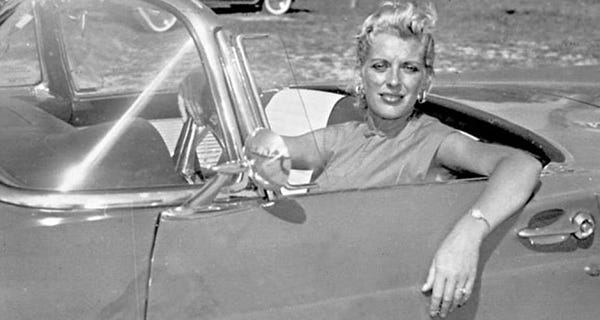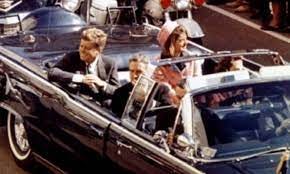May 27, 3.30 a.m.
Look, I made a movie, all lit by candles, just like Barry Lyndon — in that and in every other way. But why? Here’s my rationale.
Apart from B.A., which might just as well signify Buenos Aries for all the good it does me, I don’t have any letters I can append to my name as proof of distinction, to wield as a cudgel when booking a prime table at the A&W. Sometimes, if I feel the need to gussy my credentials, I’ll sign myself as William James Richardson, CPP, OAP. These acronyms need no explaining to my Canadian contemporaries, to Boomers who are surely as excited as am I to wake up knowing that today, Thursday, May 27, is the day our government pensions will be paid. Frabjous! I’ve been up since 2, warming my hands over a flickering bank app, working up an approximation of a sweat by hitting “refresh,” over and over, just for the pleasure of receiving not only the payment but also the monthly reassurance that I exist, that I am, that my name has been inscribed — quill, ink pot, vellum — on a roll in some dank federal office; also, that someone, somewhere, has cared enough about me to have thought long and hard and rationally about what my years of service are worth — I see graphs, spread sheets, actuarial tables, estimated dates of demise noted in pencil in a discreet corner, next to a question mark that’s been half erased — and then, month after month, to cut me a digital cheque and send it off with a blown kiss and a wry whisper of “There you go, my love, get yourself a little treat, it’s a two teabag day, enjoy!”
I ought not make light. I’m lucky, and don’t require reminding of this. I’m still able to work, I’m happy to work, I have a job I never imagined I’d enjoy, or need, but that, as it turns out, I do and I do. How old people — I mean, older even than I — who don’t or can’t work, and who have no other source of income, get by on what the CPP and the OAP provide, however beneficent the programme, however much better than nothing it might be, is unclear to me. It can’t be done.
By the time you get to 50, you’re pretty much through with rites of passage until the day of the great sailing on. That letter informing you that you will soon be able to introduce yourself as a pensioner is one such moment when you know that something has changed, or is about to. What I mostly remember about that missive was how dour and cheerless and grudging it was. Yes, sure, it’s an official communication, after all, no one expects it to sound like something Stacey from the steno pool would write on a goodbye card for Hal who’s retiring, but surely there could have been something that edges near the laudatory or congratulatory, something that comes close to saying, “Gosh, but haven’t these 40 years flown by in the blink of an eye! (winky emoji) Thanks for all your hard work and your tax dollars that kept the country viable! (blessing hands emoji) It’s time to put your feet up and take a well-earned rest! (smiley emoji) Here’s how we can help! (eggplant emoji. or whatever.)
But no. It was boilerplate, a slapdash kiss-off in an ugly font, cursory and badly written. “Now you’re old, and have to go / Until you croak we’ll send some dough / Rest assured it won’t be much / Treat your buddies? Nope. Go Dutch.” That was the Hallmark sum of it.
Not that I’m bitter.
Yesterday, writing about Mavis Gallant (MG) I revisited the Eudora Welty observation that childhood learning stamps you with its moments, not steadily, but as a pulse. Old age does too, as it turns out, but the sound that accompanies these now and again revelations — the pulse slows — is of a door slamming shut rather than creaking open on beautiful, expansive vistas of sun-drenched green. Yesterday at the store I was tending to a few tasks that don’t get done often enough — you would be surprised to learn how easy it is to look away from jam and honey and soft-drink shelves, tacky with a sticky residue that needs removing — and this afforded me the chance to reflect, to take the pulse of some of those childhood moments of learning that mark us. Learning, of necessity, is an abandonment of innocence, and the long ago moments I most recall, without any deep digging, are ones that attach to being initiated, usually by a word or phrase the meaning of which I had to ask, into adult concerns.
“He was intimate with her.” This was the expression I either read in the paper or heard on the radio or TV news in reference to the East German spy, Gerda Munsinger, whose exploits with a Federal cabinet minister or two made her the Christine Keeler of the Rideau Canal. Our very own, somewhat diluted Profumo affair came to light in 1966. I would have been 10 or 11. When I asked my father what intimacy, in this context, involved — I had my suspicions — he stammered out something like, “He did with her what he ought not have done. Ahem. With her.” I knew just enough about sex, its principles and tab A, slot B mechanics, that I could clutch at his meaning: an inkling confirmed. About the specifics of the Munsinger affair I remember little, but that moment of father-son awkwardness, that tentative dropping of the carnival mask of the adult world, is still vivid. A pulse. A little danger is a knowledgeable thing.
Friday, November 23, 1963, age 8. L, the girl who lives a few doors down, a year or two ahead of me at school, an imposing presence, loud, a bit of a bully, calls to me from the steps of her house, shouts out the news of the day, uses the word assassinate. “He could have been my uncle, you know,” she says. She means the President. This has been one of her bragging points, a story she’s told before, and for which she has the proof: some yellowing newspaper clippings in a box in a closet. I’ve seen them, been told what they tell, never read them; I wouldn’t have been capable. They had to do with someone who was kin to her, an aunt perhaps, or a second cousin, a bombshell beauty who had been kidnapped, found unharmed, whose disappearance was suspicious, whose story didn’t hold water, and who confessed that she had faked her abduction as a publicity stunt. She was a show business hopeful. The punchline is that she was known to be — whether this was disclosed in the clippings I don’t know — close to one of the Kennedys. He must have been, ahem, intimate with her. Something about the fabricated kidnapping adhered to this. I think what amazed me most was that the clippings had been cut out, been kept. This would never have happened in my family, it would have been one of those indiscreet slip-ups never to be mentioned again. Setting this down now it seems wild, it is wild, I wonder if I’m making it up, but I’m not, I can’t be. I wouldn’t have had the basic materials to build such a tale, would have had to invent the bricks as well as the foundation to cobble together the story. Memory is subject to conflation and inflation, as we know, and there’s no currency easier to transfer from account to account. It’s possible I have it wrong. But I don’t think so. The aunt, the kidnapping, the clippings, the box and the closet where they were stored, and the shuddering, lingering shock — palpable even to an 8-year old — of what had just happened in Dallas: all this is tied to learning “assassinate.” A pulse.
I remember her photos, sepia coloured on fragile newsprint. She looked like Marilyn Monroe. She looked like Jayne Mansfield.
When, a few days back, I posted a photo of the statue of Queen Victoria, toppled in front of the Manitoba legislature, her head removed, Jayne Mansfield, and the car crash in which she died, early summer, 1967, came to mind. She always does and that accident always will whenever I hear or consider using the word “decapitate.” That was when and how I learned it, from the news reports in which that shocking detail was disclosed. (For sure, people would have clipped the papers, have stored the cuttings away.) I have a clear memory of that day, or a day soon after, of hearing the Reverend Billy Graham — possibly some other televangelist, but I’m quite sure it was he — addressing a packed stadium, one of the mass gatherings of believers, of him trying to make some moral point about that tragedy: her death, the children in the backseat, the carnage. This was not the remark he’d famously made about how Americans knew more about her measurements than they knew about the Second Commandment, this was a more detailed hammering out of a thesis, a kind of Whore of Babylon expostulating. The implication was one of the wages of sin. “Her pretty head.” I remember him saying that. “Her pretty head.” It was disgusting, as even I knew. Pornographic. It should not have been spoken, should not have been imagined, but that mind is not that biddable. Imagining was all you could do, and that imagining became part of an education and hardening, not unlike, in a way, another piece of the puzzle of human fragility and adulthood, a clipping you stored in a box in a closet next to the crime scene photographs some kid at school had shown you, or the girly magazines in a pile in the garage of your scout leader. Childhood learning. Pulse on pulse. The blood quickens.
In 1964 — the same year those Maillol statues of which I’ve been writing, so celebratory of the body, the statues to which MG alluded in “The Statues Taken Down” — were installed in the Tuileries, Jayne Mansfield released a novelty album, Shakespeare, Tchaikovsky, and Me. “Miss Mansfield has many charms,” wrote the NY Times, “but poetry reading is not one of them.” She was, as is well known, a very intelligent woman, as anyone who accrues that kind of success is bound to be. She was a polyglot, a musician, well-read. She would have known, as she stood in the recording studio and put on her pouty, little girl voice exactly how the recording would be received, would have known she was pitching her tent in the campground of camp. I admire that she did it, though. I admire that she made herself a partner in that firm along with Shakespeare and Tchaikovsy — renegades, in their own ways. (I love how the two busts are giving each other sidelong looks, as though, say, at a dive bar at 2 a.m.) She had to have been intelligent and she had to have been courageous: that too, is a requirement to have done what she did. Anyway, the point is that my writing about MG brought me into the orbit of Queen Victoria and fallen statues and pulses of learning and the shedding of the childhood’s skin and also, strangely, to Jayne. So I’ve built a little shrine. It’s for them both. It’s for the intelligence and courage they had, in spades. Thanks for reading. And thanks for the pension! Your tax dollars at work. xo, B





